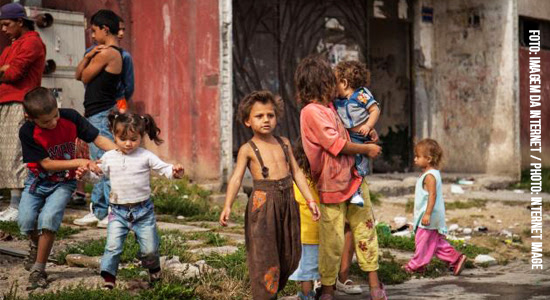
Social programs have a positive effect over child health
Simulations of child mortality have showed the impact of underfunding for child health in the 5,507 Brazilian cities and prove the poorest are the most affected
06/06/2018
Study also shows that 124 thousand hospitalizations by diseases as malnourishment and diarrheas could be avoided when compared to a fiscal austerity scenario
How to deal with investments and health expenses in times of low economic growth, instability and deficit? Which policies should be adopted to deal with a restricted national budget in a country where health seems to demand so much more?
To economist Bruno Ottoni, researcher at the Brazilian Institute of Economics at Getulio Vargas Foundation (Ibre/FGV), the recent increase of extreme poverty is directly connected to the economic crisis that struck Brazil in the last years. Crisis still result in the worse effects especially for the poorest, once this group is usually in greater vulnerability (informal employment, lower qualification, etc.). The last crisis to strike Brazilian economy was not different. It created much greater prejudices exactly for the poor and extremely poor in our Country.
To him, Brazil will only reduce the population under extreme poverty with the regain of economic growth. In this sense, in order for the Country to regain growth, it will be necessary to advance the reforms agenda currently discussed by the society. Among them, the most relevant to resume economic growth is precisely the Brazilian social security, he says. Ottoni says it is crucial to change the current social security regime to avoid a collapse in public accounts. We are coming to the end of demographic bonus. We have to give place to productivity in Brazilian economic debate. Otherwise, we will have trouble leaving the current scenario of economic stagnation and poverty increase, he says.
Other scientists, however, oppose Ottoni regarding austerity. To economist Luiz Gonzaga Belluzzo, from Unicamp, there are no real evidences that these policies lead to economic recovery. Likewise, Laura Carvalho, economist at São Paulo University (USP), outlines that austerity not only impairs growth but decreases tax collection and an increase of national budget hardship.
In the field of health, a pioneer study published on PLoS Medicine May edition, Child morbidity and mortality associated with alternative policy responses to the economic crisis in Brazil: A nationwide microsimulation study with participation of British and Brazilian scientists, assesses the impact of Bolsa Familia (a national welfare program), that transfers income directly to families under extreme poverty (reaching 21% of Brazilian population), and the Family Health Strategy, that reaches 65% of the population. According to the paper, as poverty increases, maintaining these programs should avoid the deaths of over 20 thousand children. According to David Rasella, researcher at the Collective Health Institute at Bahia Federal University, who lead the study, the projections were performed in accordance to reports from the World Bank and the Applied Economics Research Institute (Ipea), that show a poverty increase created by fiscal austerity measures, with impacts in the health of the most vulnerable populations.
The research includes three scenarios for the crisis and their effects over poverty rates and average Brazilian income. Simulations of the evolution of child mortality in the 5,507 Brazilian cities were performed according to two hypothesis: use of fiscal austerity measures in the two social programs, avoiding their expansions to attend the larger part of the population in poverty; and the maintenance of the current social protection levels. The simulations were performed for each municipality, in a way it was possible to verify the decrease rate reduction in face of the fiscal austerity policies will be much deeper exactly in the smaller and poorest municipalities in the North and Northeast regions. One of the cut-offs considers one of the main child mortality causes and points that two of the easier diseases to avoid with programs such as Bolsa Familia and ESF, which are diarrhea and malnourishment, will increase for a few years in case of cutbacks.
Childhood at risk
In face of all this, what should the government do while dealing with health under the current economic situation? According to Public Policies leader in the Abrinq Foundation, Maitê Gauto, extreme poverty requires fast arrangements by governments in order to ensure basic survival conditions for children, teenagers and their families. Data released in a recent report by the foundation are awful: poverty hits over 40% of Brazilian children and teenagers up to 14 years-old. Children and teenagers suffering from extreme poverty in the country reach 5.8 million.
In line with Gauto, Brazilian, American and British scientists in a joint study with data from the World Bank and Ipea, simulated that, until 2030, child mortality could reach 8.6% as a result of cut-offs in health budget. This number is alarming, once it contrasts with the decrease in this rate at global and tropical levels.
Finally, the Brazilian Society of Tropical Medicine, calls a reflection and draws attention to the question: is it ethical, correct or moral that such an adverse economic idelogy, with so many disastrous effects, is imposed over a people that just left a period with strong expectation of prosperity? Furthermore, does economic science play its social role when conflicting with those it should serve? The BSTM preserves hope that national political leaders will chose less perverse means, which, instead of combating a crisis, will create a new one.…










